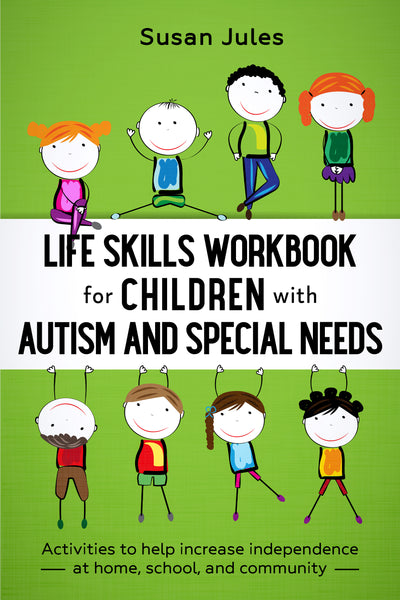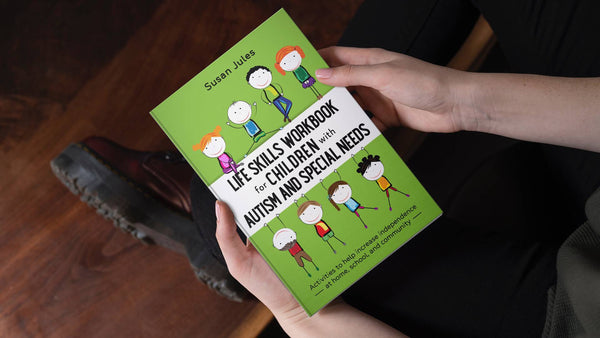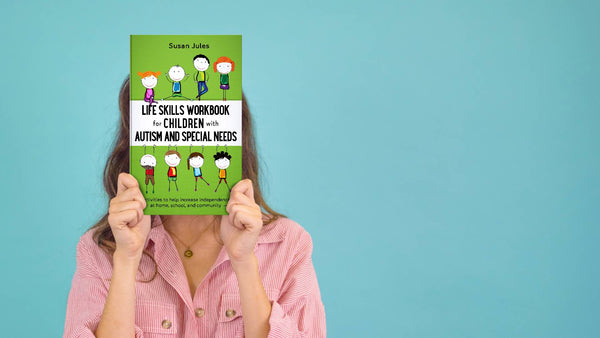Life Skills Workbook for Children with Autism and Special Needs
An eBook version is not available since this workbook has lot of activities and the details need to be filled in the pages to derive maximum benefit. Please click here to buy the Paperback version on the Amazon platform.
Learning Life skills for Children with Autism and Special Needs is essential to increase independence at home, at school and in the community. By introducing these skills early and building block by block, these children will gain the tools that will help them to be successful. Of course each child with Special Needs has a different measure of success. For some, putting on clothing, remembering to eat, or simply being able to navigate daily tasks will be the goal. For others, it will be remembering to get to class, or performing simple tasks at home or school.
But what makes a huge difference is when these skills begin at home at a very young age and then it is learnt over time and developed further throughout adolescence and adulthood.
Life skills are daily living skills which include self-care activities, health, safety, advocacy, social relationships, and empowering habits. Learning these wide range of life skills is critical. But then every person with autism is different, so the pace that they are taught, will vary from person to person.
But teaching these life skills to the best of a child's ability at a young age will make a difference as they get older.
This workbook has strategies and ideas to
- Help children in the ages 4- 12 get started and provide tools to support continued learning through the transition from school to adult life
- Help learn importance of social skills, their challenges, and how to overcome diffidence.
- Help quicken learning and improve social relationships.
- Activities that help kids develop good reading habits and strong concentration skills
- And much more
Please do remember that the acquisition of life skills is an on-going process. All skills take time to acquire and become fluent with. It is ideal to start working on all of these skills while the child still lives at home






